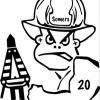Sign in to follow this
Followers
0

Marine Unit Personnel Qualifications
Started by
JM15,
-
Recently Browsing 0 members
No registered users viewing this page.

Started by
JM15,
No registered users viewing this page.